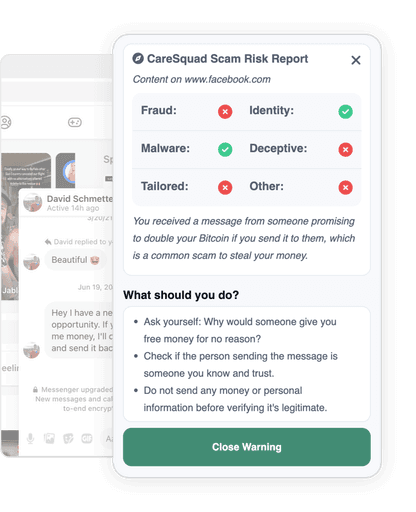
July 20th 2024

By Liam Bolling
How to Spot and Avoid Car Buying Scams
Buying a car is an exciting but sometimes stressful experience. Unfortunately, scammers prey on unsuspecting car buyers, using deceptive tactics to trick them out of their hard-earned money. In 2022, consumers reported losing over $233 million to vehicle purchase scams, a 44% increase from the previous year.
To help you navigate the car buying process safely, here are some of the most common red flags and signs of potential scams to watch out for:
1. The Price Seems Too Good to Be True
If the price of a vehicle is significantly lower than comparable models, be very cautious. Scammers often use unrealistically low prices to lure in buyers. Remember, if a deal seems too good to be true, it probably is.
According to the FBI's Internet Crime Complaint Center, 78% of all auto sale scams involved prices lower than the market average. Always research fair market values for the make and model you're interested in to avoid falling for this tactic.
2. The Seller Pressures You to Act Quickly
Scammers often try to create a false sense of urgency, pressuring you to make a decision before you have time to think it through. They may claim there are other interested buyers or that the deal is only available for a limited time.
In reality, legitimate sellers will give you time to consider the purchase, get the vehicle inspected, and review the paperwork. Don't let anyone rush you into buying a car.
3. The Vehicle History Report Looks Suspicious
Always obtain a vehicle history report from a reputable source like Carfax or AutoCheck before buying a used car. The report can reveal red flags like:
Incorrect mileage (odometer rollback)
Undisclosed damage or accidents
Inconsistent records about make/model
Salvage or rebuilt title
Around 1 in 44 used cars have had their odometers rolled back, according to Carfax data. And up to 800,000 vehicles damaged by floods and hurricanes end up on the used car market, often without proper disclosure.
If anything in the vehicle history looks suspicious, walk away. It's not worth the risk.
4. The Seller Won't Let You Get an Independent Inspection
If a seller discourages you from getting an independent inspection or won't allow it, consider that a major warning sign. Any legitimate seller should be open to having the vehicle inspected by a mechanic of your choice.
An inspection can uncover hidden problems and potentially save you thousands in repairs down the road. In a study by Vroom, 89% of American car buyers said getting an independent inspection was important.
5. The Seller Insists on an Unusual Payment Method
Be wary of any seller who demands payment in gift cards, cryptocurrency, or wire transfer. These methods make it nearly impossible to recover your money if the deal goes south.
Scammers may also ask for a deposit to "hold" the vehicle or ship it to you. However, once you send the money, they often disappear.
The safest way to pay is with a credit card or through a reputable third-party escrow service that only releases funds once you receive the vehicle and verify it's as described.
6. Pushy Salespeople at the Dealership
Even at legitimate car dealerships, you may encounter pushy or manipulative sales tactics. Some common ones include:
Bait-and-switch: Advertising a great deal to get you in the door, then claiming it's no longer available
Spot delivery scam: Letting you drive off in a car before financing is finalized, then calling you back to sign a contract with worse terms
Packed payments: Adding unnecessary fees and services into the payment without clearly disclosing them
If a salesperson makes you feel uncomfortable or pressured, trust your instincts. A good dealership will be transparent and let you make an informed decision.
How to Protect Yourself When Buying a Car
In addition to watching for these red flags, there are proactive steps you can take to avoid becoming a victim of a car buying scam:
Research the fair market value of the vehicle you want
Check the seller's reviews and reputation online
Get a vehicle history report and independent inspection
Use safe payment methods and avoid unusual requests
Take your time reviewing all paperwork before signing
Trust your gut if something feels "off" about the deal
For added peace of mind, consider using CareSquad AI - a browser extension that acts like a cyber security expert looking over your shoulder as you shop for cars online. CareSquad's intelligent AI can detect potential scams and alert you, giving you the knowledge to avoid falling victim.
Buying a car is a major purchase - one you should feel confident and secure about. By staying informed and vigilant, you can sidestep scams and drive off in your dream car. Safe shopping!











